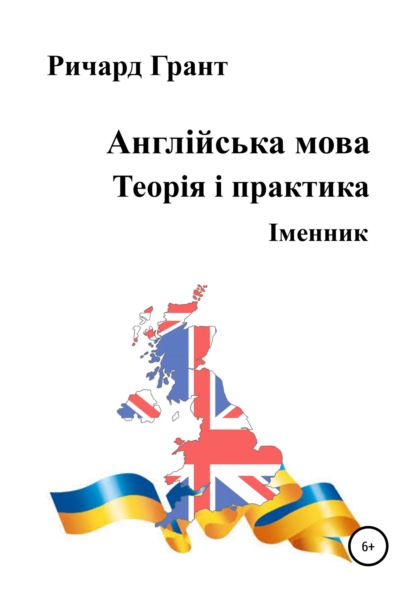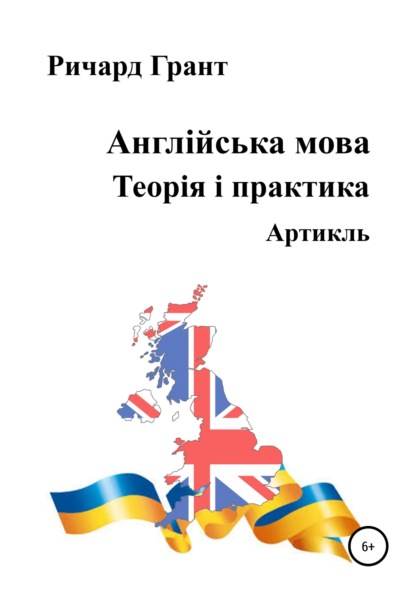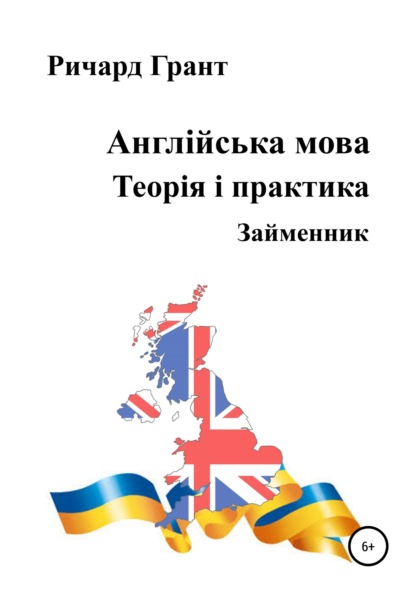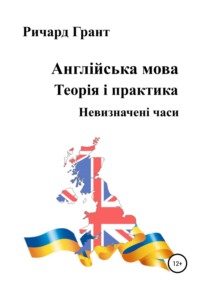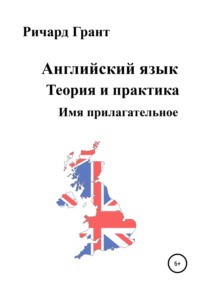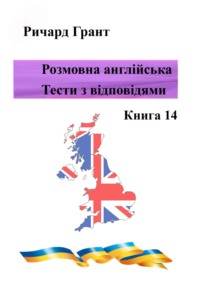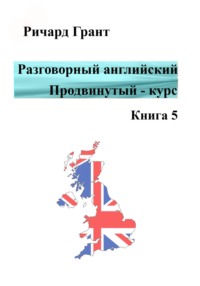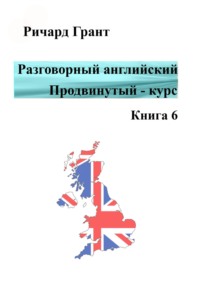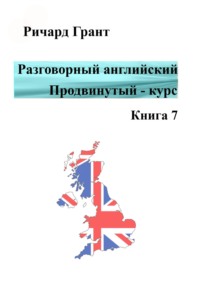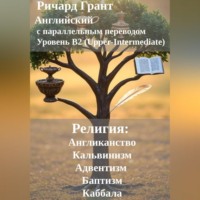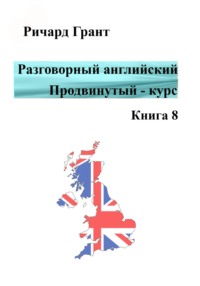
Полная версия
Англійська мова. Теорія і практика. Вживання часів
1. Look at my new dress! I (to make) it myself. 2. I (to see) you walking along the street the other day with a heavy bag. 3. He (to come) a moment ago. 4. I (to see) Pete today. 5. He (not yet to come) back. 6. He is not at school today, he (to fall) ill. – When he (to fall) ill? – He (to fall) ill yesterday. 7. I (not to read) the newspaper today. 8. I never (to speak) to him. 9. She (to see) this film last Sunday. 10. He (to go) already? 11. I already (to do) my homework. Now I can go for a walk. 12. It is very late, and trams (to stop) running: we must find a taxi to get home. 13. He just (to finish) his work.
Вправа 35
Розкрийте дужки, вживаючи дієслова у Present Perfect або Past Simple.
1. Alex (to meet) his friend two hours ago. 2. When you (to see) him last? 3. I (to do) my homework yesterday. 4. How many times you (to be) to Toronto? 5. You (to make) any spelling mistakes in your dictation? 6. I just (to meet) our teacher. 7. I (not to see) him for ages. 8. He just (to come) home. 9. At last I (to translate) this article: now I will have a little rest. 10. What books you (to read) when you (to live) in the country? 11. The children already (to decide) what to do with the books. 12. His health (to improve) greatly since I (to see) him last. 13. He (to come) home a minute ago.
Вправа 36
Розкрийте дужки, вживаючи дієслова у Present Perfect або Past Simple.
1. We (to go) to the country yesterday, but the rain (to spoil) all the pleasure. 2. They (not yet to come) from the south. 3. Yesterday they (to decide) to help their grandmother. 4. You (to pass) your driving test yet? – Yes, I (to pass) it in May, but I (not to buy) a car yet. 5. Nick (to play) football yesterday. 6. My watch was going in the morning, but now it (to stop). 7. He (to be) ill last week, but now he (to recover). 8. I (not to see) you for a long time. I (to see) you in town two or three days ago, but you (not to see) me. I (to be) on a bus. 9. He already (to move). He (to find) a nice flat last Christmas and he (to be) there a year already. 10. She already (to come) from school. Now she is doing her homework. 11. The lecture (not yet to begin) and the students are talking in the classroom. 12. If everybody (to read) this new novel, let’s discuss it. 13. I (to read) this book last year.
Вправа 37
Розкрийте дужки, вживаючи дієслова у Present Perfect або Past Simple.
1. You (to book) tickets? – Yes, I …. I (to book) them several days ago. 2. I (to read) this book this year. 3. I can hardly recognize you. I (not to see) you since you (to leave) for Toronto. And you (to change) so much. 4. I never (to be) to Washington. 5. You (to read) all the books on this shelf? 6. You ever (to be) to New York? 7. I (not to see) my cousin since last year. 8. I don’t think you ever (to see) Niagara Falls. 9. Why you (to put) these things in the wrong place? 10. I (to invite) Linda to the party. – When you (to see) her? – I (not to see) her for ages. I (to call) her an hour ago. 11. Why you (to leave) the door open? You will catch cold sitting in the draught. 12. “We (not to meet) for such a long time!” said my friend. “Yes, indeed,” I answered, “and we both (to grow).”
Рiзниця мiж The Past Simple i The Past Perfect
Past Simple використовується, коли дії відбуваються в хронологічному порядку, а Past Perfect – коли потрібно показати, яка дія відбулося першою, раніше інших дій.
He started the car, turned the radio on and fastened the seat belt. – Він завів машину, включив радіо і пристебнув ремінь безпеки.
Дії описуються в хронологічному порядку: спочатку він завів машину, потім включив радіо і пристебнув ремінь безпеки.
He started the car, turned the radio on, but before he had fastened the seat belt. – Він завів машину, включив радіо, але перед цим пристебнув ремінь безпеки.
Дії описуються не в хронологічному порядку: спочатку він пристебнув ремінь безпеки, а потім завів машину і включив радіо.
Часто в подібних реченнях використовується слово when (коли).
When I got home, my son took my car. – Коли я прийшов додому, мій син взяв у мене машину.
When I got home, I found that my son had taken my car. – Коли я прийшов додому, я виявив, що мій син взяв мою машину.
Якщо з контексту зрозуміло, що одна дія відбулася раніше іншої, можна використовувати як Past Perfect, так i Past Simple. Часто зрозуміти контекст і черговість подій допомагають наступні слова-маркери: before (перед тим як, до того як), after (після того як), first (спершу, спочатку), as soon as (відразу після того як; як тільки), earlier (раніше) i iншi.
I didn’t worry about speaking in front of so many people. I gave public speeches earlier. – Я не переживав щодо виступу перед великою кількістю людей. Я і раніше виступав на публіці.
I didn’t worry about speaking in front of so many people. I had given public speeches earlier. – Я не переживав щодо виступу перед великою кількістю людей. Я і раніше виступав на публіці.
Вправа 38
Розкрийте дужки, вживаючи дієслова у Past Simple або Past Perfect.
1. When the police … (to arrive), we already … (to catch) the thief. 2. Tom (to return) from the cinema at five o’clock. 3. By two o’clock the teacher (to examine) all the students. 4. Jack … (to finish) the test before the bell … (to ring). 5. Tom (to return) from the cinema by five o’clock. 6. On my way to school I (to remember) that I (to leave) my report at home. 7. When Anna … (to come) to say good-night, her children already … (to fall) asleep. 8. I (to finish) my homework at seven o’clock. 9. My friends (to be) glad to hear that I (to pass) all the exams successfully. 10. Scott already … (to prepare) the dinner when her husband … (to get) home from work. 11. I (to finish) my homework by seven o’clock. 12. Poor Oliver (to lie) unconscious on the spot where Sikes (to leave) him. 13. When Brad and Susan … (to get) married, they … (to know) each other for 3 years. 14. He (to think) that he (to lose) the money. 15. Mary (to tell) us that she (to cook) a good dinner.
Вправа 39
Розкрийте дужки, вживаючи дієслова у Past Simple або Past Perfect.
1. He (to open) his eyes, (to look) around and (to try) to remember what (to happen) to him. 2. She … (not to enjoy) the film because she … (to read) the book before. 3. Ann (to tell) me that she (to see) an interesting film. 4. All the passengers (to see) at once that the old man (to travel) a great deal in his life. 5. Our apartment … (to be) in a mess because I … (to have) a birthday party the night before. 6. When I (to come) home, mother already (to cook) dinner. 7. By the time we (to come) to see him, he (to return) home. 8. We … (not to go) to a restaurant because we … (to spend) all our money on clothes. 9. When father (to return) from work, we already (to do) our homework. 10. During the holidays my friend (to visit) the village where he (to live) in his childhood. 11. Mary … (can’t go skating) after she … (to break) her leg. 12. When the teacher (to enter) the classroom, the pupils already (to open) their books. 13. When they (to enter) the hall, the performance already (to begin). 14. Larry … (to be) late because he … (to get) stuck in a traffic jam. 15. Kate (to give) me the book which she (to buy) the day before. 16. Yesterday I (to find) the book which I (to lose) in summer.
Вправа 40
Розкрийте дужки, вживаючи дієслова у Past Simple або Past Perfect.
1. When I came home, my mother (to tell) me that she (to receive) a letter from grandfather. 2. Nick (to show) the teacher the picture which he (to draw). 3. Where you (to work) before you (to go) to university? 4. The boy (to give) the goats the grass which he (to bring) from the field. 5. He (to know) French before he (to visit) France. 6. Mother (to see) that Nick (not to wash) his hands. 7. Lanny (to say) that he (to get) his education in Cape Town. 8. The teacher (to understand) that Lena (not to do) her homework. 9. The boy (to want) to act the main part in the play because he (to organize) the theatre. 10. I (to know) that my friend (not yet to come). 11. Lanny (not to know) who (to attack) him in the darkness. 12. When I (to wake) up yesterday, father already (to go) to work. 13. The girl (to be) glad that she (to find) a seat near the window. 14. Nick (to think) that his father (not yet to come) home. 15. Suddenly he (to remember) that he (not to ring) her up in the morning. 16. When we (to come) to the station, the train already (to leave).
Рiзниця мiж The Present Perfect i The Past Perfect
Present Perfect використовують для опису дії, яка завершилася до теперішнього моменту, в той час як Past Perfect – для дії, яка почалася і завершилася до певного моменту в минулому.
Основні слова-маркери Past Perfect i Present Perfect: already (вже), just (тільки що), since (з), yet (вже; ще не), ever (коли-небудь), for (на протягом).
He has already left, but you can call him and ask to wait for you. – Він уже пішов, але ти можеш йому зателефонувати і попросити почекати тебе. – Present Perfect – (дія завершилася до певного моменту в сьогоденні)
When I called the police, the thief had already gone. – Коли я подзвонив в поліцію, злодій вже втік. – Past Perfect – (дія завершилася до певного моменту в минулому)
I haven’t finished cooking yet. Can you, please, wait a bit? – Я ще не закінчила готувати вечерю. Можеш, будь ласка, трохи почекати? – Present Perfect – (дія завершилася до певного моменту в сьогоденні)
I hadn’t finished cooking dinner yet so he ate a sandwich. – Він прийшов додому дуже рано вчора. Я ще не закінчила готувати вечерю, тому він з'їв сендвіч. – Past Perfect – (дія завершилася до певного моменту в минулому)
We have been married for 20 years, and now he wants to get divorced. – Ми одружені 20 років, і тепер він хоче розлучитися. – Present Perfect – (дія завершилася до певного моменту в сьогоденні)
We had been married for 20 years and got divorced in 2018. – Ми були одружені 20 років і розлучилися в 2018. – Past Perfect – (дія завершилася до певного моменту в минулому)
Рiзниця мiж The Future Perfect, The Future Simple i The Future Continuous
Future Simple – щось станеться в майбутньому – говоримо про це як про факт, без акценту на тривалості або завершеності дії.
I will buy tickets for the concert tomorrow. – Я куплю квитки на концерт завтра.
He will talk to his boss as soon as he can. – Він поговорить з босом, як тільки зможе.
Future Continuous – дія почнеться в майбутньому і триватиме якийсь час – акцент на тривалості цієї дії.
I will be going home from work this time. – У цей час я йтиму з роботи додому.
I will be waiting for you. – Я буду тебе чекати.
Future Perfect – дія завершиться до певного моменту в майбутньому – акцент на результаті цієї дії.
They will have finished the project before the deadline. – Вони закінчать проект в строк.
We will have been best friends for 30 years by then. – На той час ми будемо друзями вже 30 років.
Рiзниця мiж The Present Perfect Continuous i The Present Continuous
Present Perfect Continuous – дія почалася якийсь час назад, тривала і все ще триває.
She has been playing volleyball since childhood. – Вона грає у волейбол з дитинства. Вона справжній професіонал.
I have been washing the car. I need to take a shower. – Я мив машину. Мені потрібно прийняти душ.
Present Continuous – дія відбувається зараз.
She is playing volleyball. Look – she is wearing black shorts and a white T-shirt. – Вона грає у волейбол. Подивися – на ній чорні шорти і біла футболка.
I am washing the car. Then I’ll have a shower. – Я мию машину. Потім я прийму душ.
Рiзниця мiж The Present Perfect Continuous i The Present Perfect
Present Perfect Continuous – акцент на тривалості дії. Неважливо, закінчилася дія чи ні.
I have been cleaning the kitchen all morning. I am very tired. – Я прибирала кухню весь ранок. Я дуже втомилася.
Mary is very studious. She has been doing homework all evening. – Мері дуже старанна. Вона робить домашнє завдання весь вечір.
Present Perfect – акцент на результаті дії. Дія виконана.
I have cleaned the kitchen. It is as good as new now. – Я прибрала кухню. Тепер вона як новенька.
She can go out because she has done her homework. – Вона може йти гуляти, бо зробила домашнє завдання.
Present Perfect Continuous – дія все ще триває або тільки що закінчилася. Можна задати питання how long? (як довго?).
I have been watching the last season of “Game of Thrones” since yesterday. – Я дивлюся останній сезон "Гри престолів" з учорашнього дня.
They have been hitchhiking for seven years. – Вони подорожують автостопом вже сім років.
Present Perfect – дію завершено. Можна задати питання how much? (скільки?), how many times? (скільки разів?), how often? (як часто?).
I have watched the last episode of “Game of Thrones” three times. – Я подивився останню серію "Гри престолів" три рази.
I have never hitchhiked in my life. – Я ніколи в житті не подорожував автостопом.
Рiзниця мiж The Present Perfect Continuous i The Past Continuous
Present Perfect Continuous – дія почалася в минулому і або все ще триває, або у неї є результат в сьогоденні.
What have you been doing all day today? – I have been working on a presentation for our next meeting. – Чим ти займався весь день сьогодні? – Я працював над презентацією для нашого наступного зібрання.
Past Continuous – дія відбувалася в певний момент в минулому.
What were you doing at 9 p.m. yesterday? – I was working on a presentation for our next meeting. – Що ти робив вчора о 9 годині вечора? – Я працював над презентацією для нашого наступного зібрання.
Рiзниця мiж The Future Perfect Continuous i The Future Perfect Simple
Future Perfect Continuous i Future Perfect Simple схожі, а іноді можуть бути взаємозамінними. Наприклад, у випадку з дієсловами, які не використовуються з часами Continuous: know, understand та іншими. Однак є між ними одна важлива відмінність – для Future Perfect Continuous важливо підкреслити тривалість дії, а Future Perfect Simple робить акцент на завершеності дії і її результаті.
By the end of the day I will have been reading for eight hours. – К кінцю дня я буду читати протягом восьми годин. – Future Perfect Continuous
By the end of the day I will have read 500 pages of the book. – К кінцю дня я прочитаю 500 сторінок книги. – Future Perfect Simple
I will have been working on this project for six months by the end of this year. – К кінцю року я буду працювати над цим проектом вже протягом шести місяців. – Future Perfect Continuous
I will have finished working on this project by the end of this year. – К кінцю року я закінчу працювати над цим проектом. – Future Perfect Simple
Запам'ятайте:
У додаткових реченнях часу і умови після сполучникiв if, when, as soon as, before, till/until, after замість майбутнього часу вживається теперішній час.
Вправа 41
Розкрийте дужки, вживаючи дієслова у Present Continuous, Present Simple або Future Simple.
1. I (to play) chess tomorrow. 2. It (to be) cold in autumn. It often (to rain). A cold wind often (to blow). 3. You (to come) to my place next Sunday? 4. My sister (not to like) coffee. 5. I (not to play) chess tomorrow. 6. The weather (to be) fine today. It (to be) warm, the sun (to shine) brightly. A soft wind (to blow). Small white clouds (to sail) in the sky. 7. You (to read) this book next week? 8. When you (to go) to bed every day? 9. You (to play) chess tomorrow? 10. Don’t go out: it (to rain) heavily. 11. You (to read) books every day? 12. What he (to read) now? 13. He (to play) chess every day. 14. Take your raincoat with you. I am afraid it (to rain) in the evening and you (to get) wet through if you (not to put) it on.
Вправа 42
Розкрийте дужки, вживаючи дієслова у Present Continuous, Present Simple або Future Simple.
1. You (to read) a book now? 2. What he (to read) every day? 3. He (not to play) chess every day. 4. Every spring birds (to come) to our garden and (to sing) in the trees. 5. I (not to see) him tomorrow. 6. What he (to read) tomorrow? 7. He (to play) chess every day? 8. Listen! Somebody (to sing) in the next room. 9. What you (to do) tomorrow? 10. You (to give) me this book tomorrow? 11. They (to play) chess now. 12. It usually (not to snow) at this time of the year. 13. What your friend (to do) tomorrow? 14. Where she (to be) tomorrow?
Вправа 43
Розкрийте дужки, вживаючи дієслова у Present Continuous, Present Simple або Future Simple.
1. They (not to play) chess now. 2. What the weather (to be) like now? It (to snow)? – No, it … . 3. Where you (to go) next summer? 4. Where she (to go) tomorrow? 5. They (to play) chess now? 6. We (to go) out of town to ski on Sunday? – Yes, we … if it (to snow) this week and if there (to be) a lot of snow everywhere. 7. Where you (to go) every morning? 8. She (to go) to the country with us tomorrow? 9. Nick (to walk) in the park now. 10. What you (to do) tomorrow? – We (to go) out of town if the weather (not to change) for the worse. You (to come) with us? – With pleasure, if only I (not to have) too much work to do at home. 11. Where you (to go) now? 12. They (to stay) at home tomorrow. 13. Nick (to go) to school every day. 14. If we (to have) TV sets at our supermarket, they (to inform) customers about things in the store.
Вправа 44
Розкрийте дужки, вживаючи дієслова у Present Continuous, Present Simple або Future Simple.
1. Look! Mary (to dance). 2. What you (to do) now? I (to see) that you (not to read). 3. Nick (to go) to school tomorrow. 4. If we (to play) music, it (to produce) the right atmosphere. 5. She (to dance) every day. 6. When you (to finish) your homework? It (to be) very late, it (to be) time to go to bed. 7. I (to miss) your excellent cooking! 8. If we (to put) in cameras, they (to stop) people stealing things. 9. She (to dance) tomorrow? 10. How you usually (to spend) evenings? 11. You ever (to buy) presents? 12. If we (to employ) more assistants, they (to help) our customers. 13. He (to go) to the theatre tomorrow. 14. What you (to do) in the country next summer?
Вправа 45
Розкрийте дужки, вживаючи дієслова у Present Continuous, Present Simple або Future Simple.
1. You (to think) it (to be) easy or difficult to choose the right presents for people? 2. We (to go) to school in the morning. 3. They (not to drink) tea now. I (to think) they (to watch) TV. 4. What present your mother (to receive) for her next birthday? 5. Look! Kate (to go) to school. 6. What your father (to drink) in the evening? 7. You (to help) your mother tomorrow? 8. When you (to get) up every day? – I (to get) up at seven o’clock. 9. I (not to play) the guitar now. 10. My brother usually (not to get) up at seven o’clock. As a rule, he (to get) up at six o’clock, but tomorrow he (to get) up at seven o’clock. 11. My brother (to play) the guitar every evening. 12. Why she (to come) home so late tomorrow? 13. They (not to take) care of the garden next summer. 14. We (to go) to the country the day after tomorrow.


